Who is Sergey Kislyak?
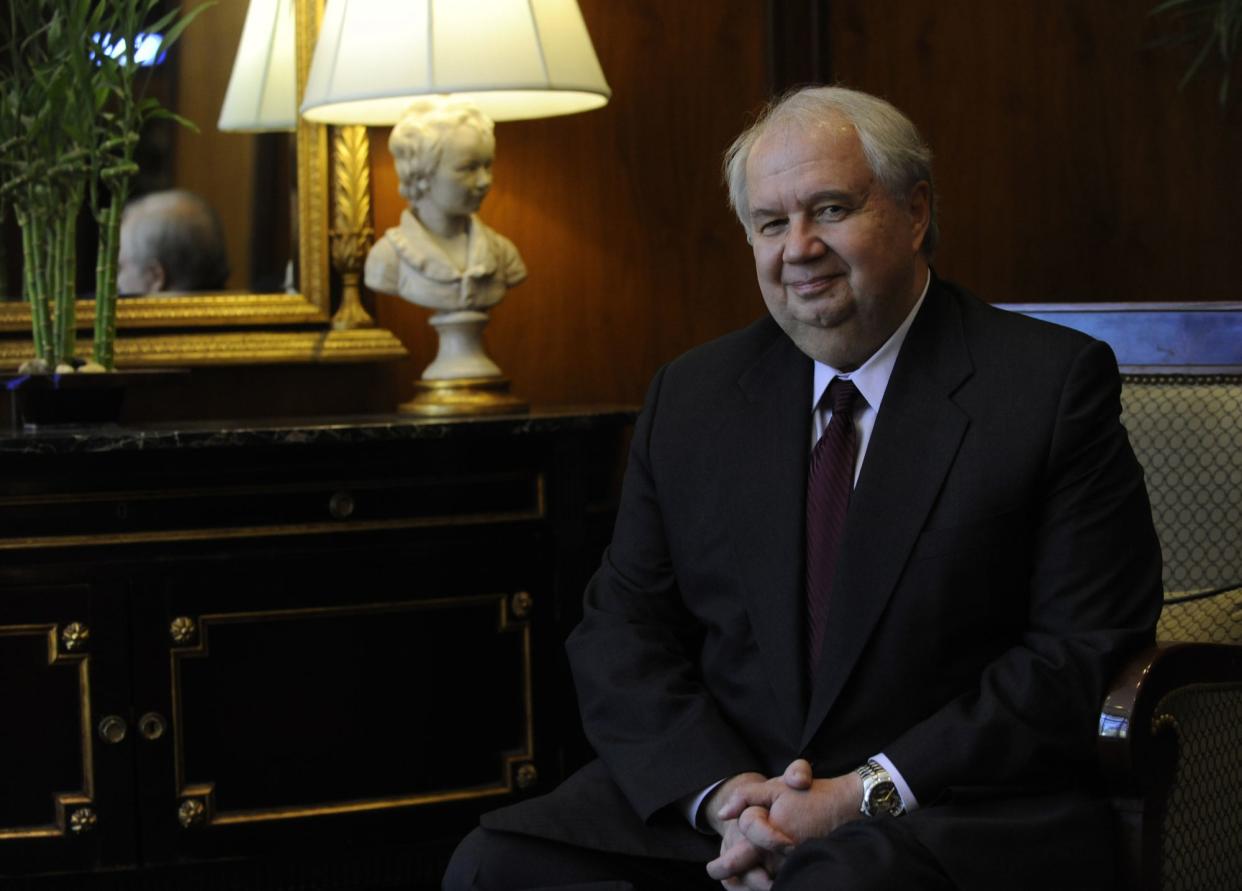
Sergey Kislyak is the Russian ambassador at the center of two recent controversies surrounding the Trump administration. Conversations Kislyak had with President Donald Trump's former national security adviser, Michael Flynn, ultimately led to Flynn's resignation just weeks after Trump took office. On March 1, Attorney General Jeff Sessions came under fire over reports that he had met with Kislyak during the presidential election and failed to disclose those meetings during his confirmation hearings when asked about contact with Russia. And the next week, Kislyak's team denied he ever interacted with Trump, even though they had met once during his campaign.
Here are eight things to know about Kislyak:
1. He's a very experienced diplomat.
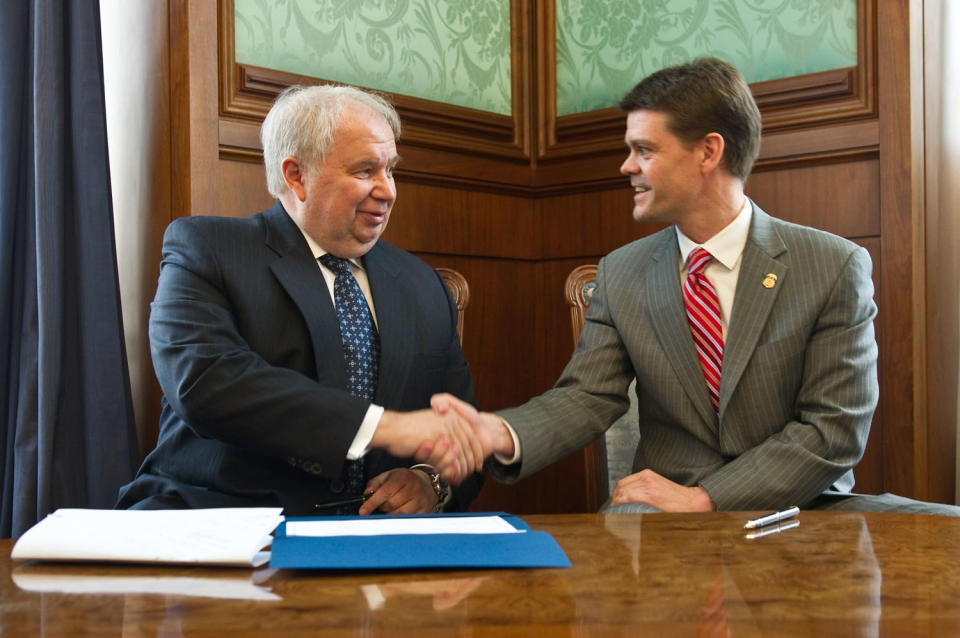
Kislyak studied as an engineer before joining the Soviet Union's Foreign Ministry in 1977, during the height of the Cold War. He's spent his entire career in the Russia foreign services. His first extended stint in the United States was from 1985 to 1989, when then-Russian President Mikhail Gorbachev was trying to reform the Soviet Union.
Between 1998 and 2003, Kislyak served as Russia's ambassador to NATO, after which he returned to Moscow to act as Russia's deputy foreign minister.
His current stint in Washington began in 2008, when he was appointed ambassador to the U.S. CNN described Kislyak's nine-year tour of duty as "unusually long."
2. He's considered very good at what he does.
Kislyak isn't just an experienced diplomat - by most accounts, he's a very skilled one.
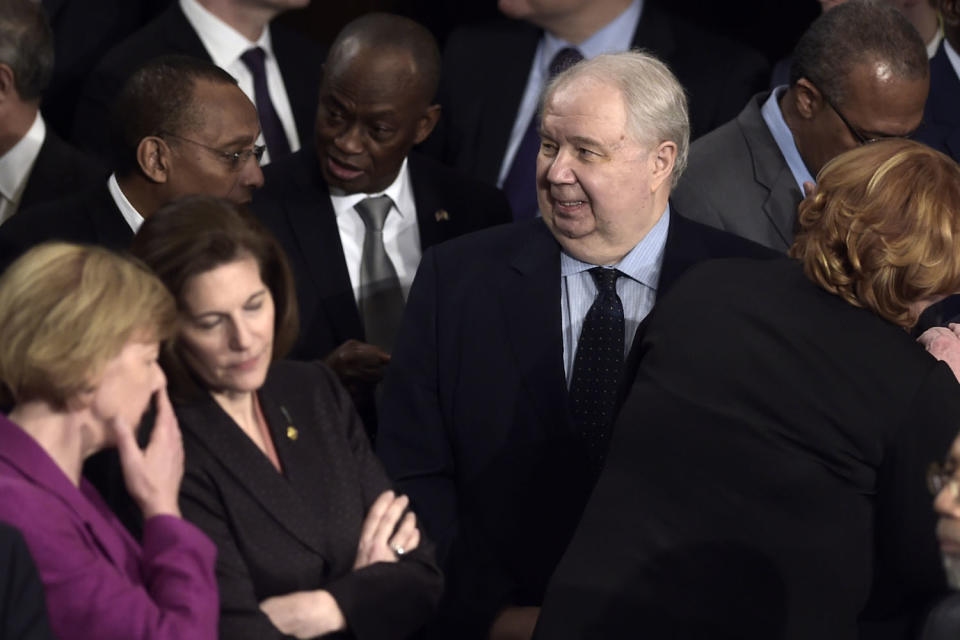
“He can be charming and entertaining and really understands the important role of personal respect in diplomacy,” Matthew Rojansky, director of the Kennan Institute at the Woodrow Wilson Center, told Vox. “So generally a very capable guy, very professional and by the book. “
Evelyn Farkas, a former deputy assistant secretary of defense for Russia, Ukraine, and Eurasia, also told Vox that Kislyak has “a reputation as a professional diplomat who can be blunt, firm, and charming in the same conversation.”
Former diplomats consider Kislyak an expert in arms control, according to CNN. When he was deputy foreign minister, Kislyak led the Russian side of talks with the U.S. on arms control.
“I would describe him as Russia’s top authority on the United States,” said Vladimir Frolov, a foreign policy analyst, told the New York Times.
3. He's been accused of being a spy.
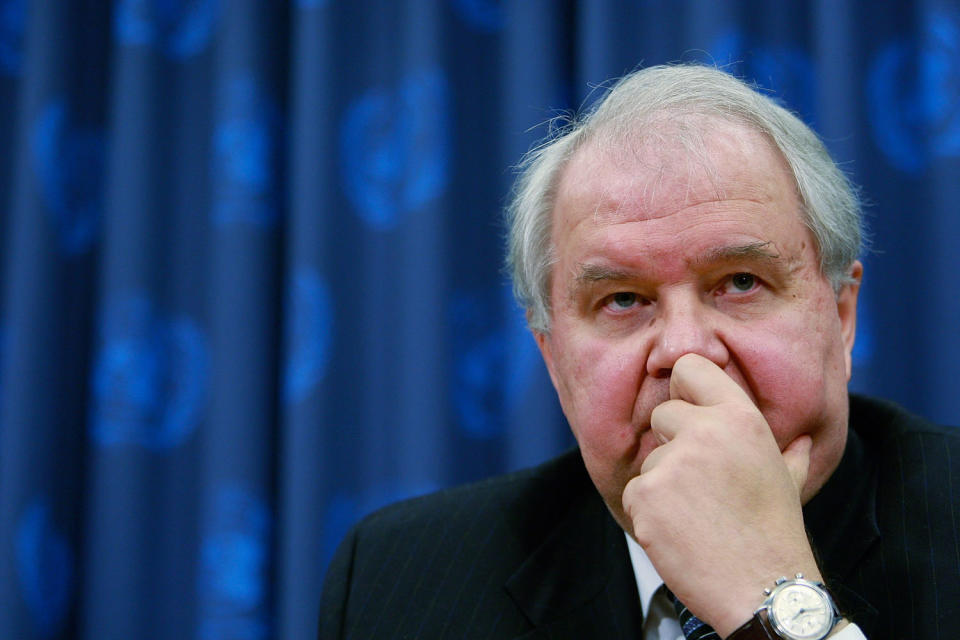
According to CNN, "current and former senior U.S. government officials" consider Kislyak to be "one of Russia's top spies and spy-recruiters in Washington."
Russian officials have dismissed this claim. Foreign Ministry spokeswoman Maria Zakharova wrote (sarcastically) in a Facebook post, "I'll reveal a top secret - diplomats do work, and their job is to establish contacts with people."
As Vox reports, there's no indication that the FBI is investigating whether or not Kislyak is, in fact, a spy.
4. He communicated with Trump's former National Security Adviser Mike Flynn before and after the election.
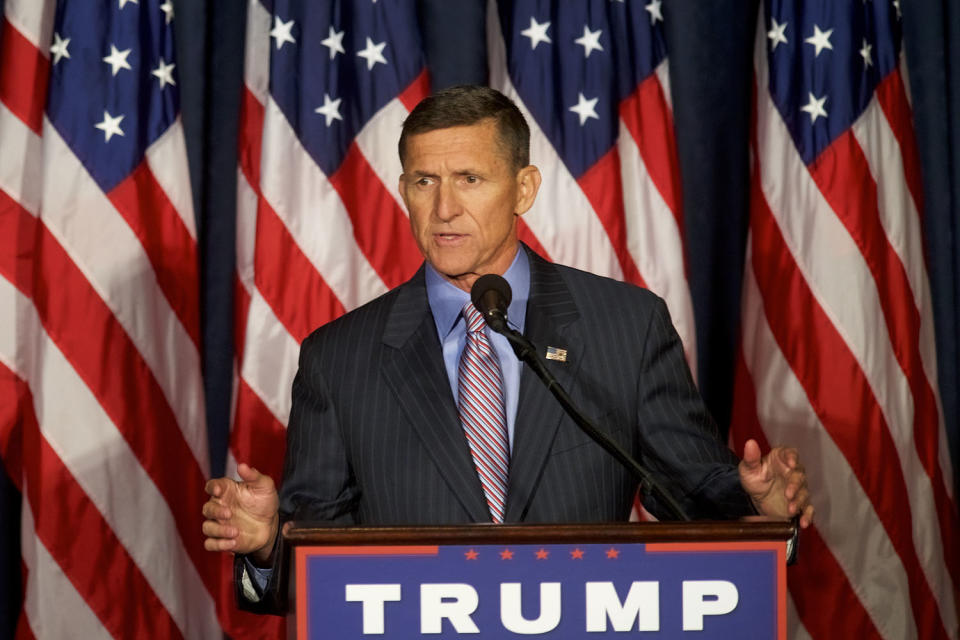
In early February, the Washington Post reported that former National Security Adviser Michael Flynn had discussed U.S. sanctions against Russia with Kislyak a month before Trump took office. Some U.S. officials said the discussion likely signaled to the Kremlin that Russia could expect the U.S. to ease sanctions then-President Barack Obama imposed in late December in response to alleged Russian interference in the 2016 presidential election.
There's a law against U.S. citizens interfering with diplomacy, called the Logan Act, which has never been prosecuted (it was enacted in 1799). But bringing charges against Flynn would be "daunting," the Post said, partly because there's no case history to help guide authorities.
After initially denying the charges, Flynn, who communicated on several occasions with Kislyak before and after Election Day, eventually backtracked, saying through his spokesman "that while he had no recollection of discussing sanctions, he couldn’t be certain that the topic never came up.”
Jared Kushner, Trump's son-in-law and senior adviser, participated in a meeting with Flynn and Kislyak at Trump Tower in December. “They generally discussed the relationship and it made sense to establish a line of communication,” White House spokesman Hope Hicks said. “Jared has had meetings with many other foreign countries and representatives - as many as two dozen other foreign countries’ leaders and representatives.” Kislyak also arranged a meeting between Kushner and Sergey N. Gorkov, the head of Russia’s state-owned development bank Vnesheconombank.
On Friday, May 26th, 2017, the Washington Postreported that according to U.S. officials briefed on intelligence reports, Sergey Kislyak, Russia’s ambassador to the U.S. told his superiors in December that Kushner asked him about setting up a communications channel between the Trump transition team and the Kremlin. The meeting is said to have occurred on December 1 or 2 at Trump Tower in New York, and was attended by Michael Flynn, Trump's first national security adviser. Kislyak was reportedly "taken aback" by the request, and the Washington Post writes that people familiar with the situation say it's of investigative interest to the FBI.
On Feb. 13, Flynn resigned as national security adviser. His resignation came, Trump said, not because of his discussions with Kislyak, but because he misled Vice President Mike Pence, who went on TV in January and denied that anyone on the Trump team had talked to Russia during the campaign. Pence also said Flynn didn't discuss sanctions with Kislyak during their December call.
During a press conference in February, Trump described Flynn's talks with Kislyak as simply part of his job. "I don't think he did anything wrong," Trump said. "If anything, he did something right."
"The thing is," Trump added, "he didn't tell our vice president properly, and then he said he didn't remember, so either way, it wasn't very satisfactory to me."
5. His connection to Attorney General Jeff Sessions has come under scrutiny.
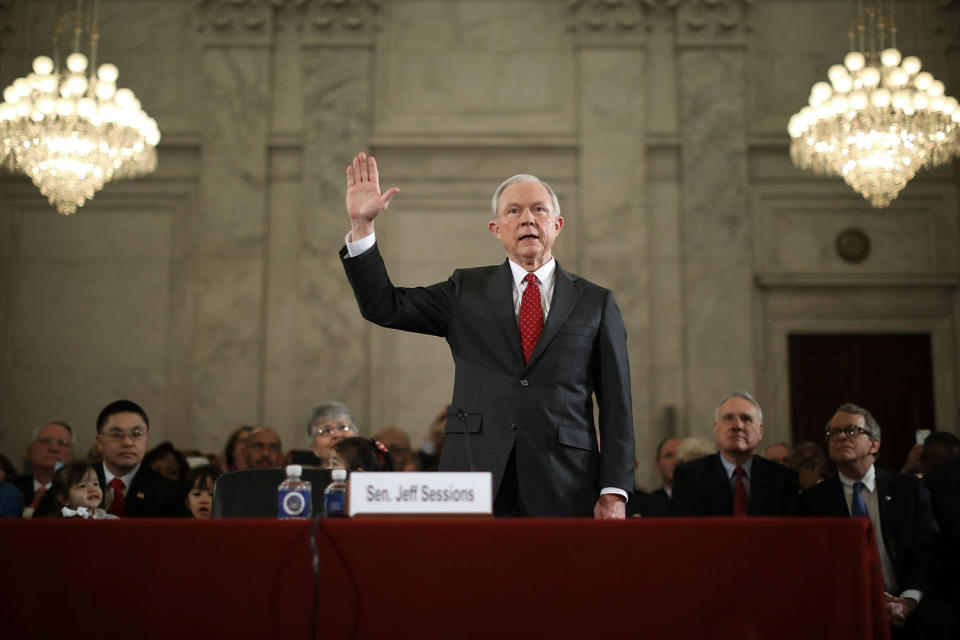
Kislyak again found himself at the center of a Trump administration controversy when on March 1, the Washington Post reported that then-Sen. Jeff Sessions spoke with the ambassador twice last year and failed to disclose the interactions during his confirmation hearings. Sessions was a member of the Senate Armed Services Committee at the time, as well as a prominent surrogate for then-candidate Trump.
Sen. Al Franken, a Democrat from Minnesota, asked Sessions about reports that people affiliated with the Trump campaign ("Trump surrogates," he said) communicated with Russia. Franken wanted to know what he'd do about those allegations.
"Senator Franken, I'm not aware of any of those activities," Sessions responded. "I have been called a surrogate at a time or two in that campaign and I didn't have - did not have communications with the Russians, and I'm unable to comment on it."
In fact, Sessions met with Kislyak in July during an event for diplomats at the Republican National Convention, where Kislyak was one of several ambassadors to approach Sessions, according to the Washington Post. They met again two months later, in September, in Session's office.
Sessions has insisted that he did not discuss anything campaign-related during these meetings, which he says is why he did not disclose them during his confirmation hearings. Instead, he said he was meeting with Kislyak in his capacity as a senator and member of the Armed Services Committee. (The Washington Post reached 20 of the 26 members of the Senate Armed Services Committee and asked whether they had met with Kislyak in 2016. None of the 20 had.)
"I never met with any Russian officials to discuss issues of the campaign," Sessions said in a statement. "I have no idea what this allegation is about. It is false."
Sessions's spokesperson, Sarah Isgur Flores, defended his decision not to disclose the meetings, saying he "was asked during the hearing about communications between Russia and the Trump campaign - not about meetings he took as a senator and a member of the Armed Services Committee."
Former U.S. ambassador to Russia, Michael McFaul, tweeted his take on the situation.
Let's not be naive folks. Kislyak obviously was meeting Sessions because of his role in Trump world. That's his job.
- Michael McFaul (@McFaul) March 2, 2017
Democrats and even some Republicans called for Sessions to recuse himself from any investigations into Russian interference with the election.
"Last night when I read the revelations ... and his decision to mislead Congress without those contacts, I felt a knot in the pit of my stomach," Senate Minority Leader Chuck Schumer told reporters after the news broke. "The information reported last night makes it clear, beyond the shadow of a doubt, that Attorney General Sessions cannot possibly lead an investigation ... with these revelations, he may very well become the subject of it."
Some Democrats, including Rep. Nancy Pelosi and Sen. Elizabeth Warren, said Sessions should resign as attorney general. "Jeff Sessions lied under oath during his confirmation hearing before the Senate," Pelosi said.
On March 2, Sessions officially announced that he was recusing himself from any investigations related to the 2016 campaign.
“[Justice Department ethics officials] said that since I had involvement with the campaign, I should not be involved in any campaign investigation,” Sessions said.
6. He met Trump once during the campaign, but only briefly.
The Wall Street Journal reported in May 2016 that then-candidate Trump met with Kislyak before giving a major foreign-policy speech. "Mr. Trump met at a VIP reception with Russia’s ambassador to the U.S., Sergey Ivanovich Kislyak," the report notes. "Mr. Trump warmly greeted Mr. Kislyak and three other foreign ambassadors who came to the reception." But later on, Trump's team insisted he had never met with Kislyak; spokesperson Sarah Huckabee Sanders said in March 2017 that Trump had "no interaction" with the ambassador.
Sanders clarified her statements to Huff Post, saying the meeting was quick and not substantial whatsoever. “The National Interest hosted Mr. Trump’s foreign policy speech and pre-speech reception. Several ambassadors were present. Mr. Trump was at the reception for about five minutes and then went immediately to the podium,” she said. “We have no recollection of who he may have shaken hands with at the reception and we were not responsible for inviting or vetting guests. To state a ‘meeting’ took place is disingenuous and extremely misleading.”
7. He is not considered a member of Putin's inner circle.

Although Kislyak is obviously deeply ingrained in Russian politics, he's not considered a member of Russian president Vladimir Putin's inner circle.
"He’s loyal to Russia. I imagine he’s had some interaction with Putin but didn’t come from his inner circle of intelligence and St. Petersburg," Steven Pifer, a former U.S. state department official who now works as a director at the Brookings Institution, said, according to The Guardian.
Matthew Rojansky, director of the Kennan Institute at the Woodrow Wilson Center, agreed with that sentiment, telling Vox that while not considered a part of the inner circle, Kislyak and Putin do likely "interact personally.”
8. He met with Trump the day after Trump fired FBI director James Comey.
On May 10, 2017, Kislyak and Russian Foreign Minister Sergey Lavrov met with Trump at the Oval Office. The meeting was closed to the U.S. media, but the Russian embassy shared photos on Twitter.
Find more pictures of Sergey Lavrov's visit to Washington, DC on @MFA_Russia's Flickr account 📷https://t.co/TKMEUwjbDp📸 pic.twitter.com/zsJHbjBOh5
- Russia in USA 🇷🇺 (@RusEmbUSA) May 10, 2017
Ambassador Kislyak and President Trump / Посол С.Кисляк и Президент Д.Трамп pic.twitter.com/Ckkx2YL9KX
- Russia in USA 🇷🇺 (@RusEmbUSA) May 10, 2017
A White House readout did not mention Kislyak's presence at the meeting.
9. He was called back to Moscow by the Kremlin in late June.
On June 25, 2017, BuzzFeed News reported that Russia is recalling Kislyak to Moscow amidst the growing US, FBI, and congressional investigations into Russia’s meddling in the US presidential election. “He could use some time away,” a US-based diplomat told BuzzFeed.
This article was originally posted in March 2017 and has been updated.
You Might Also Like

